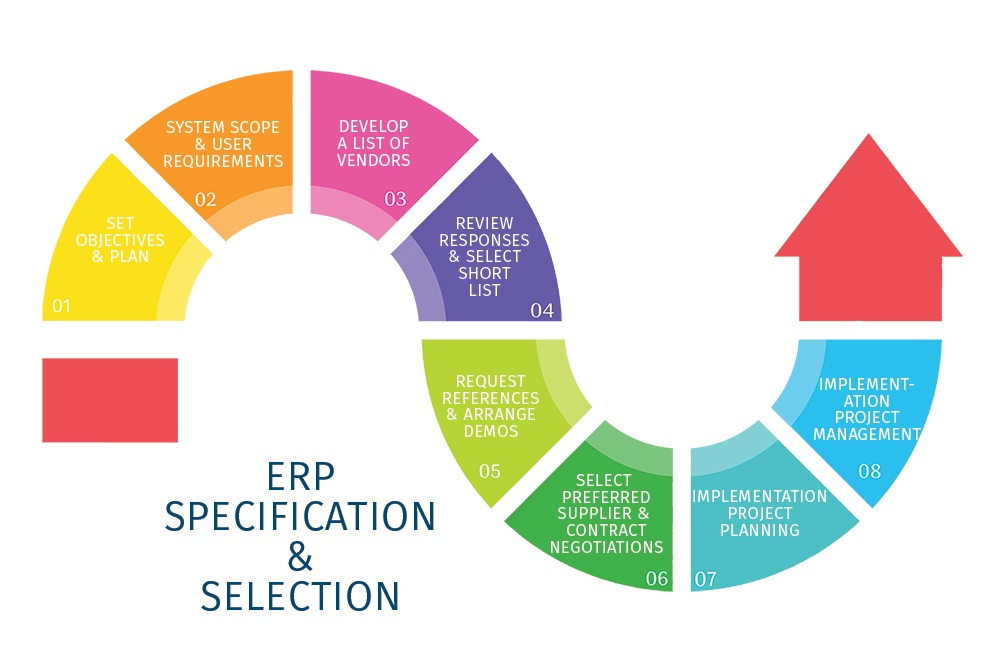
Avoid these Mistakes for a Successful ERP Implementation
Every company operation must have an enterprise resource planning (ERP) system in place. We like to concentrate on all the methods that you can make your project successful when we discuss ERP solutions.
Because of this, after selecting the ERP pos system, picking the best implementation partner is perhaps the most significant choice you will make.
SMB Solutions and other next-generation partners can assist you achieve success more rapidly by accelerating time to value, guaranteeing greater adoption rates, and avoiding these common mistakes:
Investing without enough research and planning
There is no phase more important as you get ready for ERP choosing. Every aspect of the project will be out of balance if your goals and initiatives are not properly linked from the start.
An ERP pos system is not a panacea for all of your issues. Before switching to a new ERP solution, many businesses miss significant problems with their manual, old procedures.

To ensure that outcomes correspond with business plans, business-critical issues must be recognized and handled well in advance. Implementing ERP involves transformation; it involves simplifying, automating, and improving corporate operations.
Poor data strategy
ERP software gathers information from throughout your whole business, giving you more visibility into your operations and assisting you in making wise decisions.
The best way to gather, unlock, and match it with the new ERP system must be considered. Therefore, data that is vague or inaccurate won’t be useful for making decisions. As a result, ensuring data integrity must be included in your plan.
One-time system implementation
The complexity of ERP pos systems must be fully understood since it may not be able to decide on all the implementation requirements in advance, develop the system, train users, and go live all at once.
It’s simple to get distracted by the bells and whistles that an ERP pos system might offer as you start the vendor demo phase of your deployment. To effectively identify needs, test, uncover gaps, and then go forward, it might be helpful to take modest, user-driven stages.
Although some could counter that this is simply the traditional waterfall approach of implementation, the fact is that it is outdated and only marginally compatible with current technology solutions.
Not managing organizational change
The management of change is a crucial component of implementation. The new skills that leaders, managers, and employees must learn are largely determined by how well a business handles change.
Early OCM planning will enable you to identify and resolve these problems before they become major ones. A new ERP system represents change and a learning curve for your personnel.
To encourage user acceptance and eventually increase return on investment (ROI) from company transformation, provide training and change management. Before you go live, teach personnel how to utilize and become comfortable with your new program.
Not Having a Maintenance Plan
It takes time and effort to implement an ERP solution. After the implementation is finished, the company should make the necessary regular improvements to the ERP system and engage in a maintenance strategy.
In order to address any security risks and gaps in the business operations, having a clear strategy guarantees that the ERP system is constantly operating without a hitch and is current with the most recent applications. The ERP system won’t cause additional expenses or a decline in productivity for the business.
Not doing due diligence on service providers for ERP deployment

Before signing on the dotted line, it is essential to conduct a careful study and raise the appropriate issues. Decision-makers frequently select the bigger ERP implementation service provider in the hopes of receiving a significant return on their investment. (ROI).
This ERP error can be the most harmful of them. Additionally, your leadership group has to be totally committed to the project right away. There is a considerable probability the project won’t start if they aren’t motivated or are preoccupied.
Businesses are frequently taken aback by system capability limitations, a lack of capabilities, and other issues after deployment for which they do not immediately obtain help from the vendor.
At first look, implementing an ERP pos system may seem like a tiresome effort.
Fortunately, the professionals at SMB Solutions can effectively assist you in overcoming ERP implementation issues!
The secret to successfully completing your go-live date is laying a solid foundation from the very beginning. Knowing what to do and what to avoid can help you avoid the above-mentioned ERP setup problems. We provide businesses with an all-in-one platform that hastens the adoption of software through training, onboarding procedures, and on-screen instructions.
